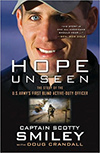Developing Intentional Leadership in Wealth Management
By Zeke Anders, Planning Specialist, Twickenham Advisors, Monday, May 16, 2022
*This article was originally published by Twickenham Advisors*
Our team recently traveled to West Point to take part in training with Thayer Leadership. Thayer Leadership is a training program led by former military officers and draws heavily from the organizational and leadership principles the Army itself uses. Although there were often words coined in the military, we found that the sessions had tremendous applicability to our own business and our own leadership. This was the second session of our training, which we began in September of last year. We learned about VUCA, which stands for an environment with Volatility, Uncertainty, Complexity, and Ambiguity. Wealth management is certainly a VUCA environment, in that we must consider rapid changes in the market, the economy, regulation, and more while dealing with the interplay of complex systems that puts a premium on agility and resilience. We make decisions about how to invest, how to manage taxes, and how to plan our affairs based on our expectations of an unknowable, uncertain future and a complex and volatile present. What we re-discovered was that to navigate change within an organization in a VUCA environment, you need leadership. Through our training, we learned that everyone is a leader, the elements of company culture, and tools for effective communication.
One of our instructors said that you manage processes and resources, but you lead people. We use the title “manager” to describe someone’s position within an organization, but leadership is something that everyone can and should practice. The Army defines leadership as “… the process of influencing people by providing purpose, direction, and motivation to accomplish the mission and improve the organization.” Everyone can be a leader, even if they don’t have anyone reporting to them. And leadership is cultivated and employed intentionally. The United States Military Academy West Point used to have what they called the “Fourth-class system”. New cadets were required to perform numerous tasks and memorize facts and details, walk a certain way, and were yelled at all without any clear reason or constructive feedback. The system indiscriminately pushed out cadets and any lessons on leadership were misguided or incidental. The Military Academy must be selective, but they also wanted to be more intentional in how cadets developed as leaders. Today, the Military Academy has a “Four Class System of Progression.” Every cadet is responsible for someone. Freshmen are responsible for themselves. They still must complete certain tasks and memorize information, but when they make a mistake, they must re-train and try again. They are treated with respect and given the opportunity to learn and try again. Sophomores are team leaders, responsible for 1-3 individuals. Sophomores used to be the overlooked class. No one was checking on them, they were not responsible for anyone, and their appearance and behavior suffered. As Team Leaders, they are expected to set an example and to guide their freshmen. Juniors are Small Unit Leaders and are responsible for up to 120 cadets. Seniors are Corps Leaders and responsible for up to 4,400 cadets. This system of progression shows the cadets that all of them are leaders, even if they are only responsible for themselves. Each of us sets an example for others, we’re all responsible for taking pride in our work and propelling the organization forward.
To gain better awareness of our own leadership ideas, we each created our own Leadership Philosophy. These Leadership Philosophies help us understand ourselves and each other better, and it was interesting to see where we align and where we differ. Going forward, we will each seek opportunities to set an example and demonstrate leadership within the organization according to our Leadership Philosophies to mitigate the effects of VUCA.
We learned about Edgar Schein’s framework of culture that consists of Artifacts, Values, and Basic Assumptions. If you picture an iceberg, Artifacts are the part above the water. They are the physical representations of the culture, such as attire, logos, physical facilities, signs, decorations, etc. We are already working on a new office that will be a tremendous representation of our values and we think will be a place both clients and employees will enjoy coming to. We need to take inventory of our artifacts and think about the message they convey. Values are just below the surface. They are an organization’s beliefs, values, and attitudes about what is important. Everyone on the team knows we put the client first. We say it out loud and we exemplify it with our actions. Basic assumptions are subconscious. They are so deeply held that they are never questioned or consciously referenced. These assumptions are like the air around us, which is crucial for us to survive, and yet it’s so present we stop noticing it. West Point had to look at their artifacts, values, and assumptions and determine whether the “fourth class system” was the culture they wanted. In our case, we have designed a new office space that will itself be an artifact to help display our values, that our clients are at the center of what we do, and we’ve documented our values as a team to work together effectively.
We gained many tools, including confirmation briefs (what did you hear me say?), leading with intent, after-action reviews (What went well? What did we learn?), tactical pauses, and battle buddies. We have started using these tools and have seen how powerful they can be. Our last day at West Point included an urban orienteering exercise where we broke up into teams and had 70 minutes to reach as many targets and capture as much “intelligence” as we can. One team member stayed at headquarters, while the rest were in the field. To capture intelligence, the field team had to find the targets, the specified information, and call it back to headquarters. I won’t spoil it, but our instructors created a serious VUCA environment to challenge us. We had to employ all our leadership tools during the exercise, we learned a lot about communication and teamwork, and had a great time.
This was an enlightening experience and will certainly make us even better as a team. It was so powerful to learn in the historic Thayer Hotel just off the campus at West Point. We toured the campus and learned the history of the buildings and the grounds which have produced so many of our nation’s greatest leaders. The cadets at West Point are preparing for an important mission, to defend our country from threats around the world. We have an important mission as well, to serve our clients by helping them achieve their financial goals and mitigating threats such as market volatility, inflation, spending surprises, and longevity. Our team left feeling energized and inspired and ready to take on the VUCA environment we face today.






